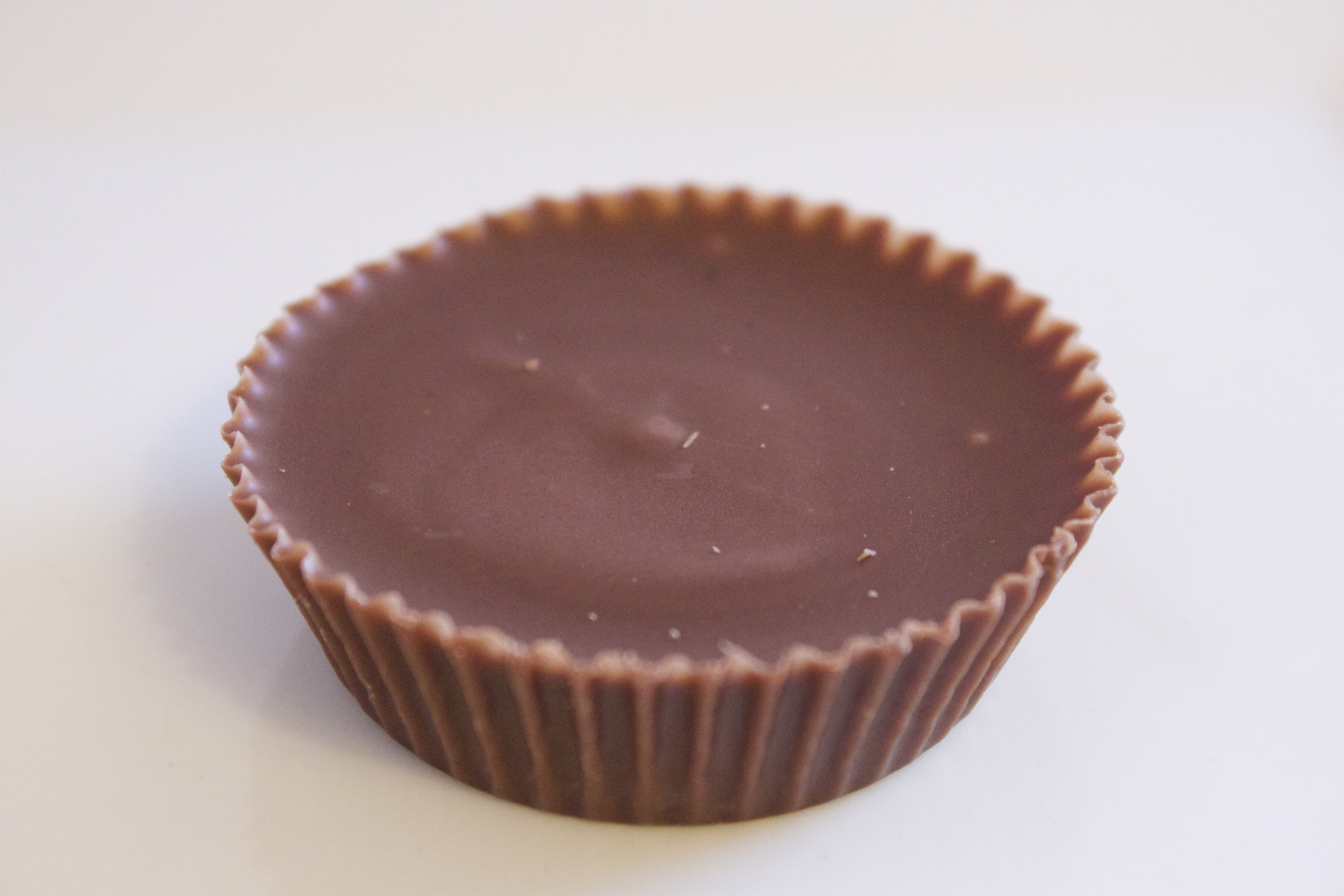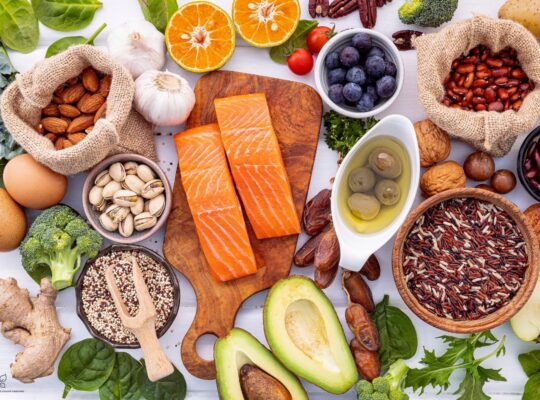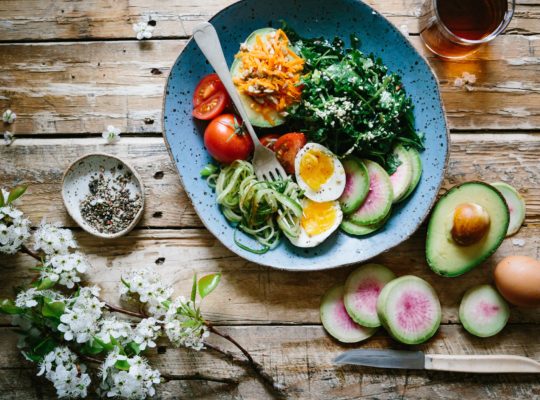I’ve been wondering if sugar is truly addictive for some time. Secretly I was a little worried about the two-sided battles that would go on in my head when presented with the opportunity to scarf down a handful of chocolate chips from the cabinet. I wondered if it was normal or if I were the only one who experienced such convincing, self-control-overriding dialog in the face of chocolate – especially in the evening.
Then I read Bright Lines Eating by Susan Peirce Thompson, PhD. She is a professor in the psychology of eating and in her book she described just this kind of mental tug-of-war. It was so relieving to hear her describe what I have experienced and to know that I am not alone. And if you have had mental battles over sugar, neither are you.
One of my main takeaways from her book is this: If you find it difficult to resist sweets, it’s not because you are weak or have no self-control. It’s because your body and mind are actively trying to convince you to give in, that you NEED it. This is a little scary to admit at first. But once we know this fact and face it, we are better able to deal logically with it.
Three ways sugar keeps us coming back for more:
1. It causes our bodies to make our own opiates, dulling pain and easing stress in the short-term.
No, sugar is not an opiate like heroine. But it DOES cause our bodies to release our own self-made opiates. These are powerful enough that sugar water is commonly used in hospitals to ease pain in babies during painful procedures like shots and heel sticks. The downside is that it has also been found to reduce babies’ scores on mental alertness and vigor.
Chances are you’ve noticed yourself how eating sugar helps you to feel more relaxed and can ease pain, whether it be physical or emotional. Ever given your kid a lollipop during a shot? I have!
2. Sugar is just as addictive as narcotics.
One interesting study done on rats showed that when they had been given both cocaine water and water intensely sweetened with saccharin, they preferred the intense sweetness over the cocaine.1 Even the rats that were addicted to cocaine preferred the sweetened water over the cocaine water.
A recent article from the British Journal of Sports Medicine2 sums up the conclusions from several studies and again confirms that sugar has significant effects on our brains and behavior similar to addictive drugs:
In animal studies, sugar has been found to produce more symptoms than is required to be considered an addictive substance. Animal data has shown significant overlap between the consumption of added sugars and drug-like effects, including bingeing, craving, tolerance, withdrawal, cross-sensitisation, cross-tolerance, cross-dependence, reward and opioid effects. Sugar addiction seems to be dependence to the natural endogenous opioids that get released upon sugar intake. In both animals and humans, the evidence in the literature shows substantial parallels and overlap between drugs of abuse and sugar, from the standpoint of brain neurochemistry as well as behavior.
Susan Peirce Thompson, PhD, the author I mentioned above, gives a powerful testimony in her book. She was actually addicted to crystal meth in her youth. As she describes, she was finally able to kick her drug habit, but her food addictions were actually MORE difficult to overcome. It’s an amazing story of a woman who was able to overcome intense addictions, learn from them, and channel her passions into helping others.
3. It dulls our ability to enjoy sweet tastes.
The more sugar we eat, the less we taste it, and the more we want to eat. Sugar actually diminishes our ability to taste sweet foods. We’ve all experienced this. Have you ever tasted someone else’s sweet tea, coffee, or lemonade and cringed because it was way too sweet? Clearly they didn’t think so, right?
To test this, participants were offered four cups of tea, each sweeter than the last. In more rural areas where there was much less sugar consumption, almost no one (only .3%) preferred the sweetest tea. But people who had lived in the sugar-rich city for ten years or more ALL wanted the sweetest tea. 3
The more sugar we eat, the more it hijacks our taste buds into demanding more sweetness.
What you can do to reduce its power on you?
The holidays are upon us and sugar is EVERYWHERE, even more than usual. How can you make it to New Year’s without succumbing to your inner sugar fiend every time a glimmering treat is offered to you? There are several strategies we can use – even in our sugar-saturated culture – to reduce sugar’s power over us.
-
Eat more healthy fats.
Natural fats from quality meats, eggs, nuts, coconut, or avocado are satisfying and reduce our cravings for sweets. Stay away from highly processed vegetable oils like canola (ever seen a canola?) or seed oils as they cause inflammation and can affect our hormones.
-
Eat more vegetables.
Filling up on non-starchy vegetables at every meal leaves very little room for dessert. Make a game of it to see how many different kinds of veggies you can eat in one meal. How many servings of vegetables can you fit into one day? Instead of counting calories, count vegetables!
-
Don’t just swap your sugar for artificial sweeteners.
Sweeteners (yes, even “healthy” stevia) just continue to desensitize our taste buds for naturally sweet foods – like fruit! They also can trigger insulin release which brings on low blood sugar and causing more cravings. It’s ok to use them occasionally for a treat but be sure to eat some fat or protein with it to blunt the insulin response.
-
Enjoy fruit in moderation and with other foods.
Yes, fruit contains natural sugar the way we were intended to eat it. And it has lots of tasty nutrients that are nourishing to your body. But downing a banana strawberry smoothie when you’re hungry is a recipe for the low blood sugar, cravings cycle to start up again. Keeping fruit consumption moderate and always eat it with some healthy protein and/or fat helps to keep blood sugar levels stable and those cravings at bay.
It seems to me that sugar is more and more present in our environment every day. But we don’t have to be a slave to its call. We can make choices that make it easier to control when and how much sugar we eat. In these days of the diabetic epidemic, I think that can make us all healthier – physically and mentally.
From your own experience, do you find sugar to be addictive? Leave a comment and let me know!
If you enjoyed this post, you might also enjoy: Do You Take Carrageenan In Your Coffee?
Works Cited
- Lenoir, Magalie et al. “Intense Sweetness Surpasses Cocaine Reward.” Ed. Bernhard Baune. PLoS ONE 2.8 (2007): e698. PMC. Web. 29 Nov. 2017.
- Br J Sports Med. 2017 Aug 23. pii: bjsports-2017-097971. doi: 10.1136/bjsports-2017-097971.
- Shanahan, Cate M.D. and Luke, Deep Nutrition, p. 225, Flatiron Books, 2017







Hi Jeni,
My name is Stephanie and I am a sugaraholic. In my lifetime experience with this addiction, I would suggest that you can not only reduce the power of sugar in you life, you can eliminate it. For me, I found that I could not control it’s power and still eat it in moderation. I had to eliminate sugar in ALL forms from my diet. The ketogenic way of eating has been a life saver to me. I eat meat in all forms, eggs, cheese, and non-starchy vegetables. That’s it. Everyday.Forever. No Cheating. I eat well and enjoy my way of eating. I refrain from all fruit except the occasional berries ( because they are low carb), potatoes, pasta, rice, bread, sweets. ALL of these foods are turned to sugar when they enter you body. They make your liver and pancreas work overtime, they cause inflammation, they keep you addicted. When I started this way our eating, I was severely overweight. I lost 80 pounds on a ketogenic diet. Then I figured in maintenance, I could add backs some carbs in moderation. Long story short, two – three year later I was right back at my starting weight. So I started again on the ketogenic way of eating- not a diet- a lifestyle. I lost 60 pounds and have kept it off for two years now. I don’t keep track of what I eat, count calories, etc. I just stick to meats, eggs, vegetables and cheese. Now do I still need to loose more weight? Yes I do. I’ll need to reduce my caloric intake to do so. That’s my plan. I just wanted to see what would happen long term when I eliminated sugar. It no longer has power over me. I’m not constantly thinking about it. I live with it in my house ( family is not on board), I bake and cook all of it for them and do not eat it. I’m home alone for a large part of the day. It’s readily available and no one would see if I ate it, but I don’t. By ridding my body of all sugar and retraining it to desire healthy foods over a period of time, I took back control. I won’t lie, the detox process was brutal for about a week or two. After that it got easier week by week. I have eliminated my sleep apnea and the CPAP machine I was using every night. I have eliminated Non-Alcoholic Fatty Liver Disease. I am no longer pre-diabetic. My blood work is perfect. I highly recommend this way of eating if you are overweight or have medical issues or just have a foggy brain because of all the sugar.
Wow Stephanie! Thank you for sharing some of your inspiring journey. I did not know this about you. Good for you for taking control of your health. I have been learning so much about keto lately and, after Mike and I realized that our sugar levels are too high, we have begun it too. Sugar is a battle for me and I have been playing around with “quitting” for some time.
Would you ever want to do a guest post to share more of your experience with keto? 🙂
Thank you for reading!
i have been reading a book one of my doctors recommended callerd The Plant Paradox. In it, the researcher says that sugar also greatly contributes to weight gain. Apparently, when our bodies taste something sweet, it’s a signal to eat as much as you can in order to store up weight for the winter, when food is sparse. This worked fine when sweet fruits were only available in season, but now that we eat them year round (and now that winter is anything but sparse) it leads to constant over eating. Couple that with constant access to refined sugar and you can see why we have such an obesity
problem. It hate that it’s true, but it is…sugar just makes us eat more and more and more!
I hate it too Melinda! But I am starting to believe it for sure. Sounds like an interesting book…I will put it on my to read list.
Thank you for reading!
Great post Jeni. And just in time for the holidays.
Thank you for doing the research.
🙂
Thanks for reading, Ashley!